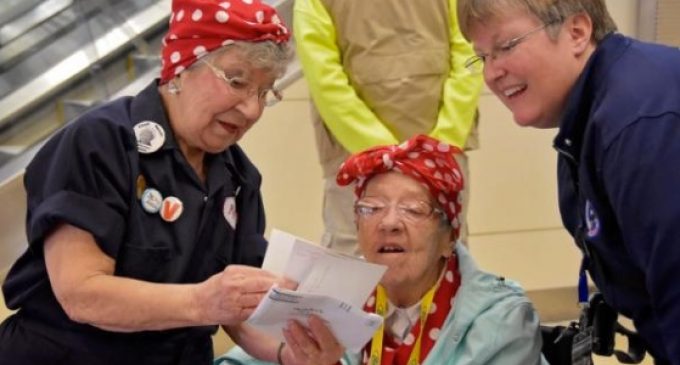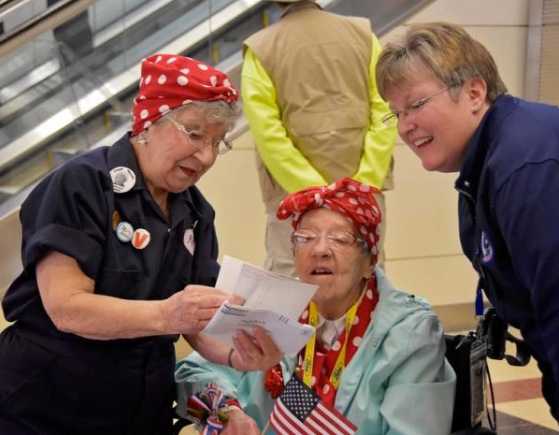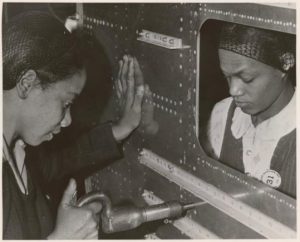Rosie the Riveter Gets National Day of Recognition


MEDIA SPOTLIGHT – “They welded pipes,” writes Lisa Fernandez of Reuters. “They drew blueprints. And, of course, they fastened munitions and machine parts together with rivets.”
“Now, seven decades after World War Two ended, a surviving handful of the women who marched into factories and shipyards, redefining workplace gender roles to help keep America’s military assembly lines running, will be honored on Tuesday as part of a National Rosie the Riveter Day celebration.”
“Well it’s about time,” said Marian Sousa, 91, of El Sobrante, CA, who worked as a “draftsman” creating blueprints for warships at the Kaiser Shipyard during the 1940s. “It shows that women are not only capable now, but they were capable then.”

Evelyn T. Gray (riveter) and Pearlyne Smiley (bucker) work on the center section of a bomber
Several “Rosies” in their 80s and 90s are being celebrated with speeches and a U.S. Senate resolution at the Rosie the Riveter WWII Home Front National Historical Park just north of San Francisco in Richmond, CA.
Sousa’s sister, Phyllis Gould, 95, and fellow Rosie worker Anna “Mae” Krier, 91, were the two women who pushed for a national day of recognition in recent years, according to Reuters.
“The work that the women did during the war is totally forgotten,” Gould said, “and it shouldn’t be.”
The Senate resolution honors 16 million women who worked or volunteered for the U.S. war effort, including many who toiled for the American Red Cross, hospitals, rationing boards and other non-factory settings.
“Facing a labor shortage as many able-bodied males joined the Armed Forces between 1940 and 1945, America’s industrial arsenal turned to women to help fill jobs previously reserved strictly for men to produce ships, planes, munitions and other war supplies,” writes Fernandez.
“The share of U.S. jobs occupied by women grew from 27% to 37% during the war years, with nearly one in four married women working outside the home by 1945.”
“We wouldn’t have won the war without the women,” said former welder Marian Wynn, 91. “I think we deserve it.”
Editor’s Note: Articles in Media Spotlight are excerpts from publications that show the industry what the public is reading about fasteners and fastener companies.



There are no comments at the moment, do you want to add one?
Write a comment